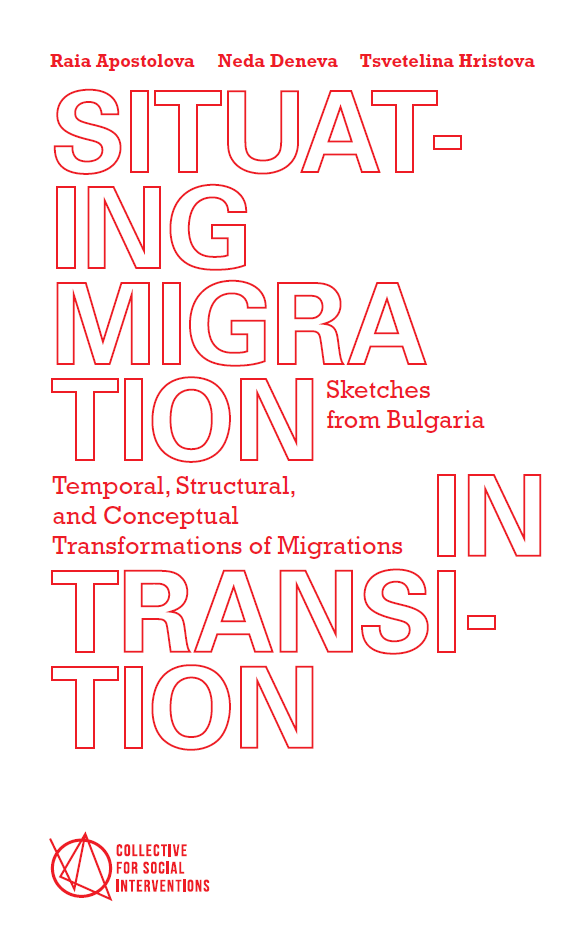SITUATING MIGRATION IN TRANSITION

Transition can have many meanings. In the Bulgarian context, and generally in post-socialist contexts, Transition contains in itself the dialectic between a pleasure yet-to-come and the necessary painful path to it. The desired end in sight is often identified with utopian images of what constitutes liberal democracy as entwined in capitalist structures of production. The process of transition is seen as an almost religious ritual of purging from the social and economic sins of the old regime.1 This hard and lengthy path to abolition explains the shortcomings of capitalism and representative democracy encountered along the way in the form of a yet impure "barbarian" capitalism. Capitalism, which comes with high rates of unemployment, loss of labour rights, emigration, unbearable poverty, increased homelessness, socio-economic and political inequalities. In these images of Capitalism, the barbarianism is always accompanied by corruption, a term reserved for the so-called "developing" countries which encompasses everything that cannot be explained in the otherwise functioning structures of capital accumulation and which serves as an excuse for them. The capitalist crisis that hit the world after 2007-8, shook the well-established boundary between Real Capitalism and Barbarian Capitalism. Instead of reaching the promised Real Capitalism, everybody around entered a Gramscian mode of interruption where all await for the new beginning and gaze at the monsters around us. Many started to realize that despite the different contexts of Capitalism, it nevertheless has similar effects.
We go against such definitions of Transition. Instead, Situating Migration in Transition looks at Transition that is always already there. Transition without a telos. In our work we have tried to situate migrations within such a framework – a framework that is always antagonistic and is in production of differentiated statuses and new politics.
